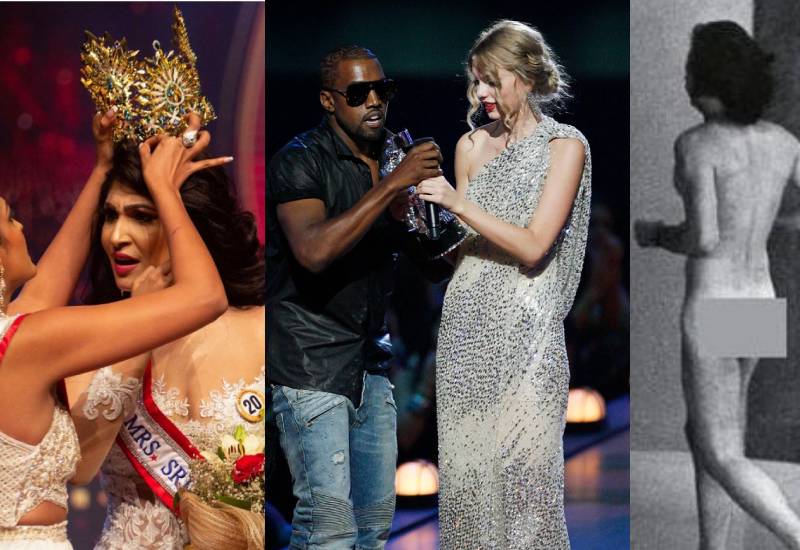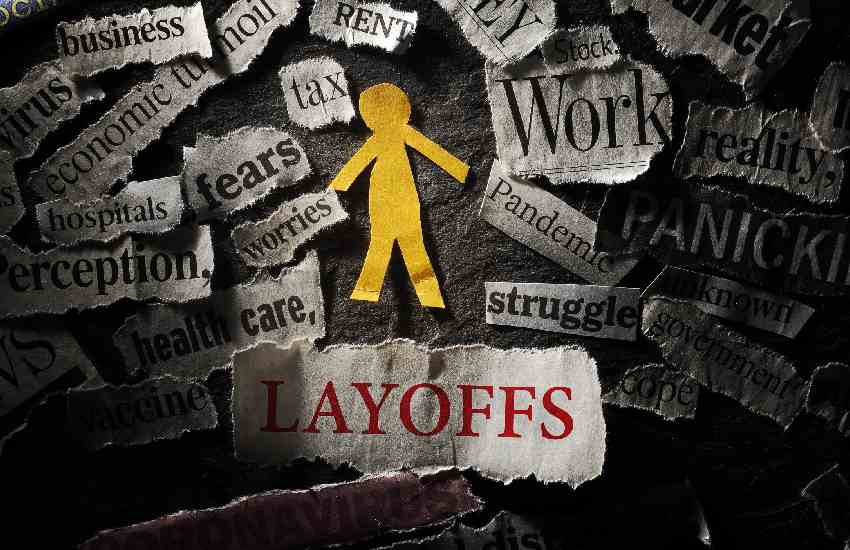
The grind is on, but the effort, blood and sweat put in the film artistry does not match the outcome at all.
This became all too clear as Ginger Ink Films Africa and OneFineDayFilms found themselves at the heart of the #KECreativesDeserveBettter controversy, calling them out for allegedly exploiting and mistreating crew and cast members for years.
Rallying the cause was Likarion Wainaina of Super Modo fame. The internationally co-produced drama film released in 2018 made an entry for the Best Foreign Language Film at the 91st Academy Awards. The film also received high ratings on popular rating sites including IMDb and Rotten Tomatoes.
Yet for all its fame, Wainaina walked away with nothing.
The issues in the film industry are seemingly deep-rooted and range from the devaluation of artistes to long working hours and pay issues, to film crews not knowing or exercising their rights.
Defy the law
CEO of the Kenya Film Classification Board (KFCB) Ezekiel Mutua responded on Facebook on June 12, 2020 saying in part: “I have no sympathy for those who defy the law with impunity, corrupt the morals of our children and use their talent to promote evil. You can trend with your #KECreativesDeserveBetter but in truth, most Kenyan artistes deserve nothing but God’s severe judgement.”
On a phone conversation with Pulse, he clarified that views on his social media platforms are his and not those of KFCB.
Mutua is not a man to mince his words. He speaks with conviction, especially when it comes to morality, earning him the tag “moral police”.
On his post, he admits, he came off as unsympathetic, which he says is only because he feels frustrated by what Kenyan creatives are doing to the industry.
“My anger and bitterness is only directed to the young impressionable minds that have to suffer under irresponsible artistry,” he says. “Most artistes have done more harm than good. Art is meant to be a vehicle to promote values and culture and to inspire people. What message are they intending for their viewers and listeners? We have become accustomed to the notion that entertainment has to be vulgar and that sex sells, but in the process, we have forgotten our values and culture,” Mutua adds.
Mutua further faults the entertainers for refusing to cooperate with the government then apportioning blame when the chickens come home to roost. He cites a survey commissioned by his board on “The Effects of Lewd, Vulgar, Violent and Obscene Music Content on Children, The Youth and Communities in General” done in 2016.
READ ALSO: Death by the reel -Kenya Film Commision on the spotlight
During the survey, the Kamba community topped the list of vernacular music with the foulest, obscene and unpalatable content.
“Just this week it was reported that over 4,000 school-going children had been impregnated since mid-March in Machakos County. Everyone can see the correlation and what effect art has on people’s minds,” he adds.
Regarding the Supa Modo controversy, Mutua recalls commenting when the film was receiving a lot of attention after being nominated for the Oscars. He had said it was the kind of film to watch and not Rafiki, but he was immediately admonished by director Wainaina.
“While still riding high on fame, he said I should not use his film to bash the Lesbian film and I let it go. Many of these artistes are chasing fame and it serves him right. Our culture is important. Look at Nollywood, every film ends with To God Be the Glory; they respect their culture.”
“They say the industry has turned them desperate, but I rebuke that notion. Look at those carpenters who made the table that converts into a bench. They have everything set, including patents and licenses. Artistes are even more educated than that and yet they fall prey to bad contracts,” he adds.
Rogue producers are being put on the spot for treating their crews badly, paying them virtually nothing, and crews have been too afraid to stand up to abusive practices.
It is the blatant way in which they perpetrate their injustices that seem to anger creatives even more. For instance, in one of their posters seeking artistes to create posters for their upcoming film Lusala, the poster clearly states at the bottom: ‘Please do not consider this opportunity for commercial reasons. We are a training initiative.’
This is a ruse used by many arts institutions as a loophole to not pay deserving artistes.
Unfortunately, Wainaina’s troubles are only one among countless similar accounts about the unclean backyards of the film industry. Not long ago, the Nairobi Half Life scriptwriter, Charles Matathia, was spotted begging in the streets of Nairobi. This angered netizens on the plight of locals in the film industry. Matathia had, pre-stardom, been a writer and editor at Kwani? But soon after, his life mirrored that of his own film. His fall from glory is upsetting considering the film’s DVDs retail price is $33.69 on Amazon, without shipping, while its creators languish in poverty.
After Silas Miami started the hashtag causing a public outcry, the Kenya Film Commission Board came out and made a statement regarding the issue.
In a presser dated June 11, 2020, the commission recognised that the ‘conversations shared edge on bad business practice, copyright infringement, code of business ethics, misuse of professional talents, lack of certification and accreditation and criminality in the industry.’
They went on to assure Kenyans that their mandate to protect and integrate the values of all talents in the film industry still remain true, making them feel protected in the space they occupy as creatives.
Further, the presser issued by order of Kenya Film Commission’s Timothy Owase said that a working group committee would be formed to address some of the issues of concern and also the code of business conduct that touches on all filmmakers.
“Our website encompasses all issues that pertain to the industry and also has a complaints board where issues can be addressed once raised,” the letter read in part.
The Kenya Film Commission claims that only now has it come to their attention that there is rot in the industry. But contributors, from actors to directors, are of a differing opinion, asserting that this issue has been around for longer than they care to remember.
“In Kenya, you don’t audition for a film and negotiate your rates. It is the production house that calls you and asks you to audition, with their terms already set,” retorts Assetto, a filmmaker, stuntman, casting director and an actor famed for his role in Wachowski’s siblings drama, Sense 8.
Assetto has also featured in films like Rafiki (2018), Taking the Flak (2009), White Horse and Survivor Africa Panama. He is no stranger to the frustrations of the Kenyan film industry, having worked on both local and international films.
“Most artistes fear being blacklisted because that’s what happens to faultfinders, but change cannot be effected in that way. I have had many horrible experiences, too many to count, under the hands of these production houses. I almost missed the role in Sense 8 because we could not agree on the terms. Ginger wanted to pay me under one contract yet I was taking two roles, as a stuntman and an actor.”
It was after much push and pull that they agreed to do the needful, albeit half-heartedly. For him, the villainy is deep-seated, starting at the production house level and trickling down to the actors themselves. Sense 8’s budget was pretty massive, at about $4.5 million ( Ksh478,340,100) per episode, as disclosed by producer Roberto Malerba, but Assetto took home only Ksh200,000 in total. He believes those doing Season 2 were paid much less.
“We have so many guilds which is as good as having none. Production houses have taken monopoly over the industry and crippled our growth as the Kenyan film scene. It is impossible to find work without them, especially international because they own the whole scene. If you dare speak out they threaten to make sure you never work again, a viable threat all things considered. You need a strong head on your shoulders to make it through,” he says.
”I did an advert in 2004 for which I was paid Sh100,000. So then, explain to me how the same advert right now costs Sh40,000. As artistes we have undervalued ourselves so much that the rates reflect the same.”
READ ALSO: International movies with a Kenyan touch
Desperation for jobs has further led to the exploitation of hardworking talented Kenyans. In his job as a casting director, Assetto regularly gets actors proposing that they will work for even half of the allocated payment, which he thinks is ridiculous.
“You have earned your place, why do we always want to work for cheaper just so we work?”
Ignored and unpunished

But he admits that he has also been a victim of underpayment, sometimes doing a casting job and not being paid at all.
“When I was called to do a two-day shoot for Rafiki, their first offer was Sh5,000. It would be insulting if it wasn’t so outrageous. We later settled for a little more, but I am surprised I even took the job,” he adds.
Despite his success having done about eight international films in his career, he calls himself a struggling artiste. He had a lot to say regarding the inappropriate conduct in the industry that goes ignored and unpunished every day.
The Kenya Film Commission Board, in his opinion, is a poorly run organisation with no one to call the shots and put out the raging flames consuming the house. He adds that #KECreativesDeserveBetter will very likely be like every other one-hit-wonder of online revolutions. People will get heated and angry then in two weeks slide back to their normal routines of politics.
“It is the artistes’ fault as much as it is anyone else’s. We need to demand our worth and not take any less.”
KFCB CEO Mutua thinks that an industry issue cannot be solved by one party.
“Enough with the finger-pointing and the blame game. It’s about time to collaborate as an industry and find a solution together. I am not in the business of condemning. In fact, very recently I helped out a young producer who closed his studio in Uasin Gishu. I have used more than Sh200,000 every month out of my own pocket to help out artistes personally. I care for them and I want to see them grow,” he adds.
Theatre production has been side-lined in the online discussion, but may very well be the most affected of them all. As a live art form, theatre is particularly affected by the global pandemic, along with concerts and stand-up comedy performances. Assuming theatres reopen, social-distancing rules could still hamper rehearsals and force venues to sell fewer and therefore more expensive tickets. Optimistic as they may be, artistes are reckoning that theatre may be a dying art form in Kenya.
Michael Juma, a stage performer and director of theatre groups as well as a screenwriter shares the sentiments but says the pandemic is merely a nail on the coffin. Theatre has been riddled with corruption and has been on its death bed for years. Juma recounts his experience trying out setbooks that he says was ‘the worst career mistake in his life.’
“I auditioned and was recruited into Two Wings Production in April. We did rehearsals in April and May to start performance in late May. The shows were smooth and everything from rehearsal times to payments went according to plan. But things went to the trenches when the managing director at that time went on leave and the assistant took over.”
“The show we went to was in a girls’ school in Kitale. The plan was to perform for Form Four students only, but the school requested that we include the Form Twos and Threes. Of course, we paid no mind to it as the more the merrier. We got 900 students paying Sh200 each. We performed six set books, all day with no lunch break, finishing at 10pm. At the end, we were all exhausted, but the girls were happy so we were happy.”
It is only after doing their end of the deal that trouble began. The acting MD gave them a tale of woes, blaming the school’s administration for somehow losing all the money. They were expected to go home with Sh200 in their pocket after enduring a whole day of work. Hungry and despondent, they fought back.
“I was an actor and stage director and being asked to convince the rest of the cast to take home those meagre earning was heartbreaking. I could not do it. Some of the actors are just Form Four leavers and they were going home at midnight with money that is not even enough for transport.”
Drugs and idleness
The flat rate for set book performances is about Sh800 and Sh1,600 for a school with many students. Juma says most theatre production owners hide under the ploy that ‘art is not about the money’, while behind the curtains they greedily pocket all the millions made by young, inexperienced artistes. Being in the industry for a while, he has seen many artistes who are desperate and would turn to drugs and idleness if not given a chance to work. As a result, they end up working for less than they deserve.
“The hashtag will do nothing for us because the timing is wrong. We are still in lockdown. Ginger Ink and OneFineDay Films have not even responded. You can tell they are unapologetic and most of the drivers of this industry are. We need the government to fight for us, but we also know how that goes,” he adds.
Juma says the money was later paid, days after squabbling with the MD, but he does not intend on doing set books ever again.
The KFCB CEO says the board has a duty as the government to protect its artistes from vulturistic foreigners who give bad contracts and rob artistes of the sweat of their brow. The board has, in fact, had meetings with Kecobo earlier on Monday as well as KRA to try and come up with solutions that will benefit the artistes.
Mutua acknowledges that the government has its shortcomings, but so do artistes. His message to them is to take the time during this pandemic to reflect on their art and its value to create masterpieces that inspire instead of corrupting. Secondly, he urges them to research on how to sign contracts. He argues that most people are aware of what the terms mean but are too consumed with the fame that will come to pay attention to what they will give up. Knowing your worth as a performer is important, he reiterates.
 The Standard Group Plc is a multi-media organization with investments in media
platforms spanning newspaper print
operations, television, radio broadcasting, digital and online services. The
Standard Group is recognized as a
leading multi-media house in Kenya with a key influence in matters of national
and international interest.
The Standard Group Plc is a multi-media organization with investments in media
platforms spanning newspaper print
operations, television, radio broadcasting, digital and online services. The
Standard Group is recognized as a
leading multi-media house in Kenya with a key influence in matters of national
and international interest.











